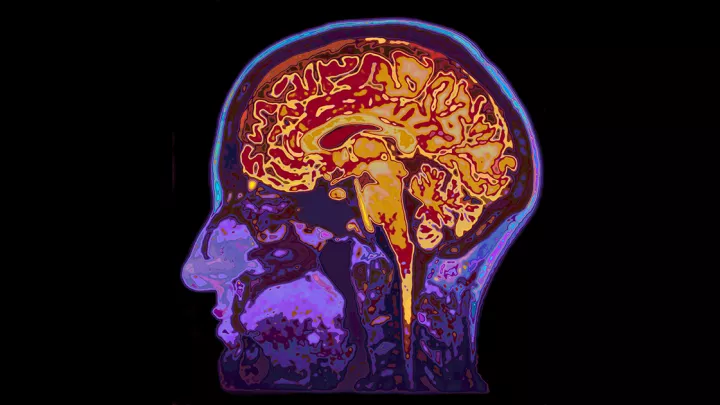8 surprising long-COVID symptoms

As of today, there's no one treatment for long COVID. It's a complicated illness that can affect multiple areas of the body. Many symptoms can come and go. What's more, one person's long COVID course can look very different from another's.
Internal medicine physician Andrew Vasey, MD, sees a variety of long COVID patients in the Nebraska Medicine Post-Acute COVID Clinic. Here Dr. Vasey shares some of the common symptoms that he and his medical colleagues see in clinic.
1. Mood disorders
The COVID-19 illness itself or its effect on the body can cause mental health illness. "People have developed depression and anxiety after their COVID-19 infection," says Dr. Vasey. "For others, their preexisting mood disorder can get worse."
Some ICU survivors also experience post-traumatic stress disorder (PTSD).
2. Sleep issues
COVID-19 survivors may experience insomnia. "Whether it's falling asleep or staying asleep, some aren't getting enough sleep. We've also seen people with new-onset nightmares," says Dr. Vasey.
Sleep apnea can be seen as well, sometimes due to weight gain from the prolonged illness. "Often we'll recommend a sleep study to see if someone is experiencing sleep apnea," says Dr. Vasey.
3. Breathing problems
Breathing is normally an unconscious process – something you do without thinking. Shortness of breath means you're consciously thinking about breathing and having difficulty doing so.
"Shortness of breath is a common issue seen in our clinic," says Dr. Vasey. "Patients can experience shortness of breath after exertion or even at rest. A persistent cough is also a common post- COVID symptom."
4. Brain dysfunction, including brain fog
Brain fog (or trouble concentrating) is a common long-COVID symptom, and may persist for weeks or longer. "Brain dysfunction after COVID-19 infection is quite common," says Thomas Scott Diesing, MD, Nebraska Medicine neurologist. "Long-COVID symptoms can include inattention, cognitive troubles, fatigue, behavioral troubles and other neurological symptoms."
Less frequently, long COVID can cause chronic fatigue syndrome (CFS).
5. Heart issues
Long after someone's original infection, they may experience chest tightness or chest pain. "We've had patients experiencing symptoms of chest pain/tightness or their heart racing over a year out from their original infection," says Dr. Vasey. Heart issues can also contribute to the post-COVID symptoms of lightheadedness, dizziness and vertigo.
Myocarditis or heart inflammation can be seen after COVID-19 infection. Importantly, myocarditis caused by the virus tends to be much more severe than myocarditis caused by the Johnson & Johnson vaccine. Viral myocarditis is also far more common than vaccine myocarditis.
See how post-COVID syndrome can affect your heart, explained by Nebraska Medicine cardiologist Daniel Anderson, MD, PhD.
COVID-19 survivors can also develop a cardiovascular condition called postural orthostatic tachycardia syndrome (POTS). A person with this syndrome has an unusually high heart rate after minimal activity, like standing up.
6. Loss of taste or smell
One alarming symptom of post-COVID syndrome is the loss of taste and smell. The vast majority of people recover their sense of smell in two or three weeks. For a smaller percentage of patients, it may take months.
7. Hair loss
"Diffuse hair loss can surprise people in the months after their infection," says Dr. Vasey.
You normally lose hair in small amounts every day. But during an infection, your hair follicles get overstimulated. Then, all at once, many of the hair follicles go to a resting or shedding phase. Hair loss can also happen with other types of infections when fevers are present.
8. Skin rashes
Viruses can affect any part of the body where blood flows, so it's not surprising that it would affect the skin, which has the most blood vessels. Skin rashes can include small bumps, discolored areas or blisters.
What is long COVID?
Some people recover from COVID-19 quickly, while others have unusual symptoms that last for months. Long COVID is defined as having new or continued symptoms that persist more than 30 days after the original infection.
At this point, the cause of long COVID isn't clear. "There are several working theories to explain why long COVID happens," explains Dr. Vasey. "It's an area of ongoing research."
Several names for the condition also exist. Long COVID can also be called:
- Chronic COVID
- Long-hauler syndrome
- Post-acute sequelae of COVID (PASC)
- Post-acute COVID
- Post-COVID syndrome or Post COVID







